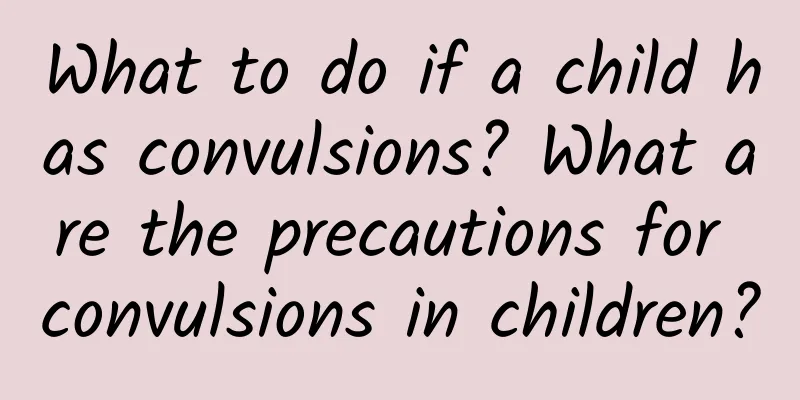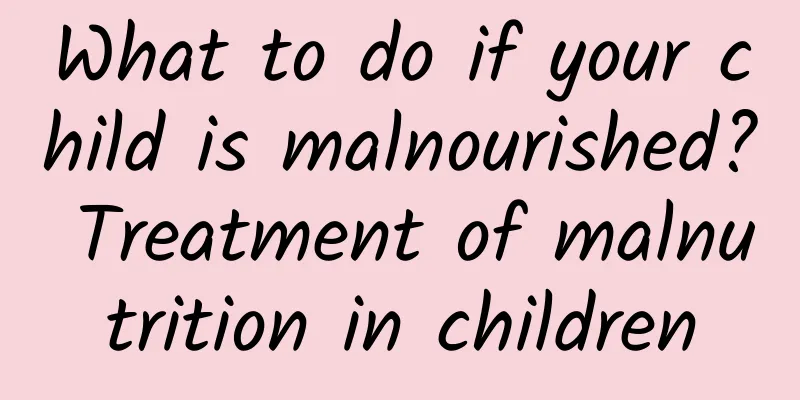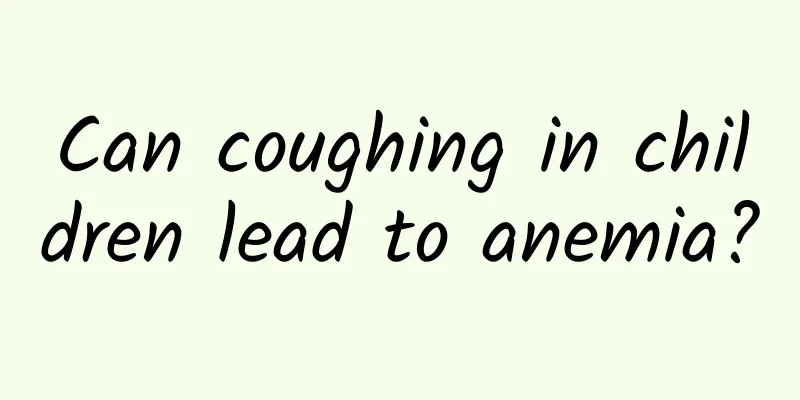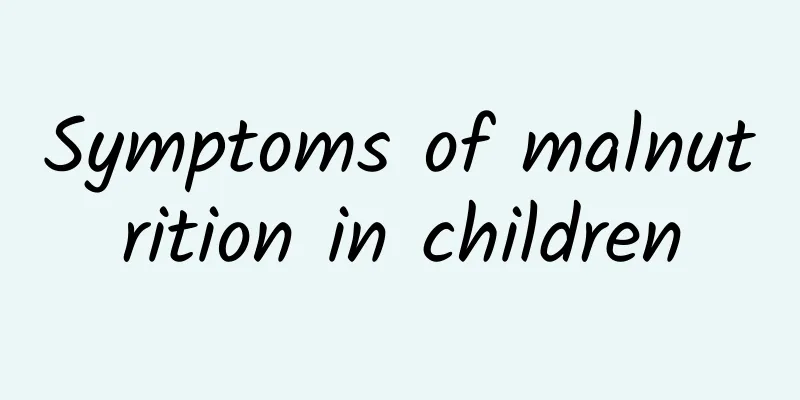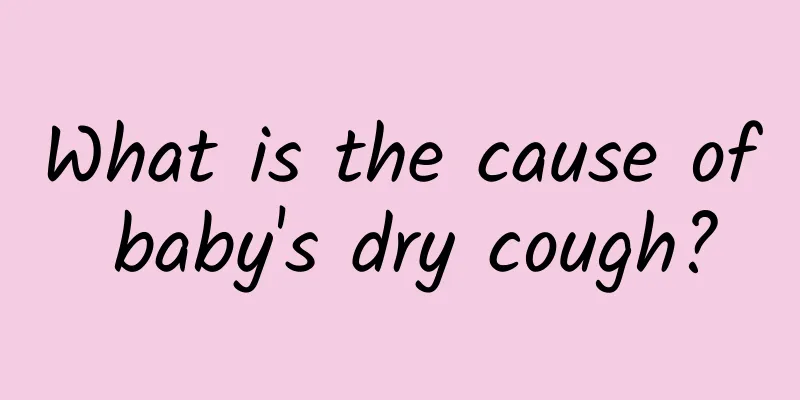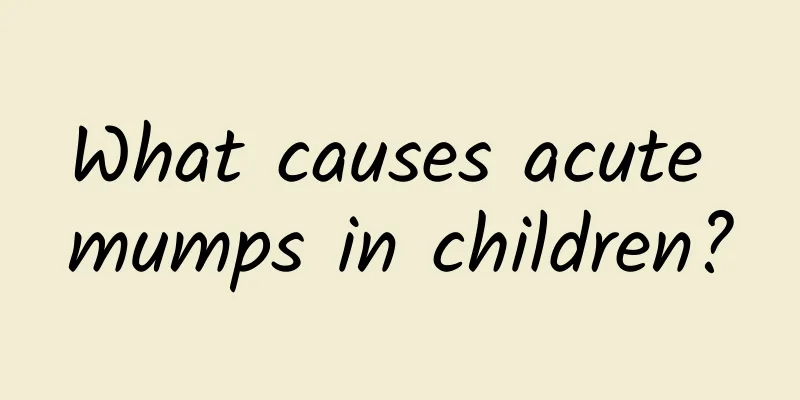How to care for children with diarrhea? What are the common sense of care for children with diarrhea?
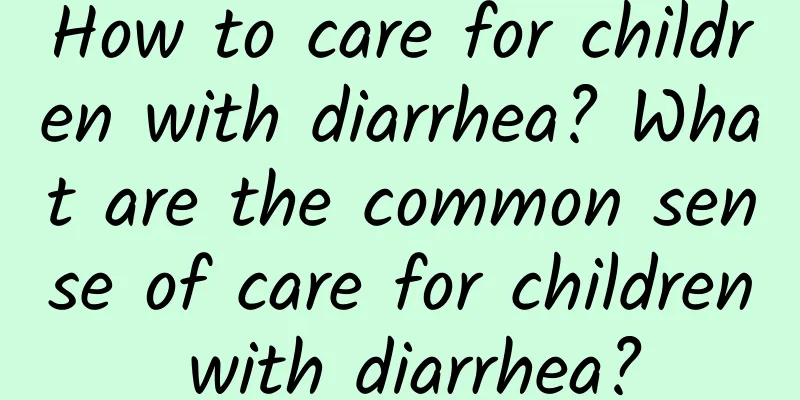
|
Diarrhea is a very common disease for babies. Diarrhea affects the digestion of children and is not conducive to the healthy growth of babies. There are many reasons why children have diarrhea. Parents need to pay attention to helping their children regulate their condition and take good care of them when they have diarrhea. So how to care for children with diarrhea? What are the common sense of care for children with diarrhea? The following is an introduction. 1. How to care for children with diarrhea 1. Pay attention to hygiene and disinfect utensils When a child has diarrhea, you must pay attention to hygiene. Parents should wash their hands carefully before and after caring for their children to avoid cross infection; children's utensils, toys, and tableware should be cleaned and disinfected, especially milk bottles, which should be cleaned promptly after each use, preferably at high temperature for 20 minutes. The tableware of older children (around 2 years old) should be separated from that of adults, and the toilet used by children with diarrhea should be thoroughly disinfected. 2. Do not abuse antibiotics The culprit of diarrhea is rotavirus, which, like other viruses, is not afraid of antibiotics. Using antibiotics will only backfire. If antibiotics are abused on children with diarrhea, it will not only kill the normal bacteria in the intestines, causing dysbacteriosis and affecting the absorption function of the intestines, but also increase the number of drug-resistant bacterial strains and cause fungal enteritis, which can prolong or aggravate diarrhea. Experts believe that from a clinical perspective, antibiotics are ineffective for non-infectious pediatric diarrhea caused by improper diet, sudden climate change, etc. For diarrhea caused by rotavirus, most children can recover as long as fluid replacement, microecological regulators and mucosal protectants are used. 3. Replenish water to prevent dehydration When children have diarrhea, they will have frequent watery stools, which are thin and light in color, and sometimes look like white rice soup or clear water. Repeated diarrhea will cause children to lose water in their bodies. In order to prevent children from dehydration, they can be given highly effective and inexpensive oral rehydration salts (ORS, which are available in hospitals and pharmacies). Every time a child has diarrhea, taking about 50-100 ml of ORS can prevent dehydration. In the absence of standard ORS, rice soup and salt can be mixed into a solution. The specific formula is: 500 ml of rice soup (a mineral water bottle), 10 grams of sugar (two flat caps of beer caps), 1.75 grams of fine salt (about 1/3 of a beer bottle cap), 500 ml of water. Boil the above materials for 2-3 minutes and let cool. Take 20-40 ml per kilogram of the child's body weight within 4 hours, and take it orally at any time in the future. If the child's diarrhea worsens, accompanied by high fever, frequent vomiting and diarrhea, and dehydration, he should go to the hospital for treatment in time. 4. Eat properly, no need to fast Children with diarrhea generally do not need to fast. Even if they need to fast, it should not exceed 6-8 hours. This is because fasting may cause starvation diarrhea, dehydration and electrolyte imbalance. However, high-protein, high-nutrition foods should not be eaten when the child has diarrhea, otherwise it may aggravate the diarrhea and be detrimental to the recovery of the child's stomach and intestines. The key to treating diarrhea is to continue feeding. Breastfed children can eat small and frequent meals; bottle-fed children can eat lactose-free milk powder or diluted milk; and children who have added complementary foods can eat porridge or noodles. Generally speaking, the course of diarrhea is 5-8 days. During this period, there is no need to fast or take supplements. The key is to eat light food that is easy to absorb. 5. Home care and careful observation Children with diarrhea are prone to depression, so parents should pay attention to changes in their children's mental state, complexion, body temperature, etc., and pay attention to whether dehydration has improved. They should also observe the frequency, volume and nature of their children's bowel movements to see if their condition has changed. Before and after caring for the child, parents should wash their hands carefully to prevent cross infection; the child's diaper should be changed promptly after each bowel movement, and the anus and surrounding areas should be washed with warm water to prevent buttocks redness and urinary tract infection. If buttocks redness has already occurred, tannic acid ointment, chlortetracycline ointment or cod liver oil can be applied. Experts remind: When children have severe diarrhea or other symptoms, parents must take their children to the hospital in time. In addition, when you go to the hospital for treatment, don't forget to bring your child's stool, because only by checking the stool can you accurately diagnose which type of diarrhea the child has so that you can treat it accordingly. 2. What to do if your child has diarrhea and fever 1. Caused by gastrointestinal infection If a child has diarrhea and fever, it is mostly due to the invasion of gastrointestinal bacteria. It is considered to be caused by bacteria, viruses, or mycoplasma infection. It is recommended to go to the hospital for a routine blood test and symptomatic treatment. 2. Food poisoning Food poisoning can also cause diarrhea and fever. Because food poisoning is caused by eating spoiled and bacterially contaminated food, which enters the human body and causes poisoning of the gastrointestinal system and circulatory system, diarrhea, fever, vomiting, etc., you can go to the hospital for examination and treatment. 3. Caused by gastrointestinal disorders If children eat too much, too oily, too cold food, have irregular diet, frequently change new food, etc., it will increase the burden on the stomach and intestines, cause gastrointestinal disorders, lead to diarrhea in children, and in severe cases, cause fever. 4. Caused by autumn diarrhea Autumn diarrhea can also cause diarrhea and fever in children at the same time. This is because the disease is caused by group A rotavirus. Once the virus enters the body, it can cause gastrointestinal reactions and diarrhea. The body will instinctively fight the virus, resulting in an immune system reaction and fever. 5. Acne If a child has acne, it may also cause fever and diarrhea. This is because acne must cause fever to promote the elimination of the virus and produce immune function, and the rash and fever may also affect the intestinal function and cause diarrhea. Therefore, the occurrence of diarrhea and fever at the same time does not rule out acne. |
<<: What are the dietary treatments for diarrhea in children? How to treat diarrhea in children?
Recommend
What are the benefits of vegetarianism to the body
Choosing a vegetarian diet can indeed bring many ...
How to treat ringworm on the child's face How to treat ringworm on the child's face
Children's immunity is relatively weak, so th...
How does Traditional Chinese Medicine treat mumps?
How does Traditional Chinese Medicine treat mumps...
Will kidney disease recur in children?
Why do children have recurrent kidney disease? Do...
What to do if your newborn baby coughs
The cough of a newborn is caused by a cold. Pay a...
Traditional Chinese Medicine Treatment of Pneumonia in Children
There are many treatments for pneumonia. Many dis...
What medicine is best for children with eczema?
Babies are the center of a family, so when our ba...
How to care for children with acute laryngitis?
Acute laryngitis in children is one of the common...
What medicine is better for baby's dry cough? How to treat baby's dry cough
The medicine that babies can take for dry cough i...
Key points for diagnosis of ADHD in children
Children with ADHD are very active and have diffi...
Is neonatal jaundice a sepsis infection?
Is neonatal jaundice a sepsis infection? 1. Neona...
How to prevent indigestion in children? What to eat for indigestion in children?
Children's digestive system diseases are comm...
Breakfast recipes for children with diarrhea
The symptoms of pediatric diarrhea have a great i...
Mumps is the worst day
Mumps is usually most severe on the third day, so...
What to do if children have urticaria due to cold
When children have a cold, urticaria is often rel...

